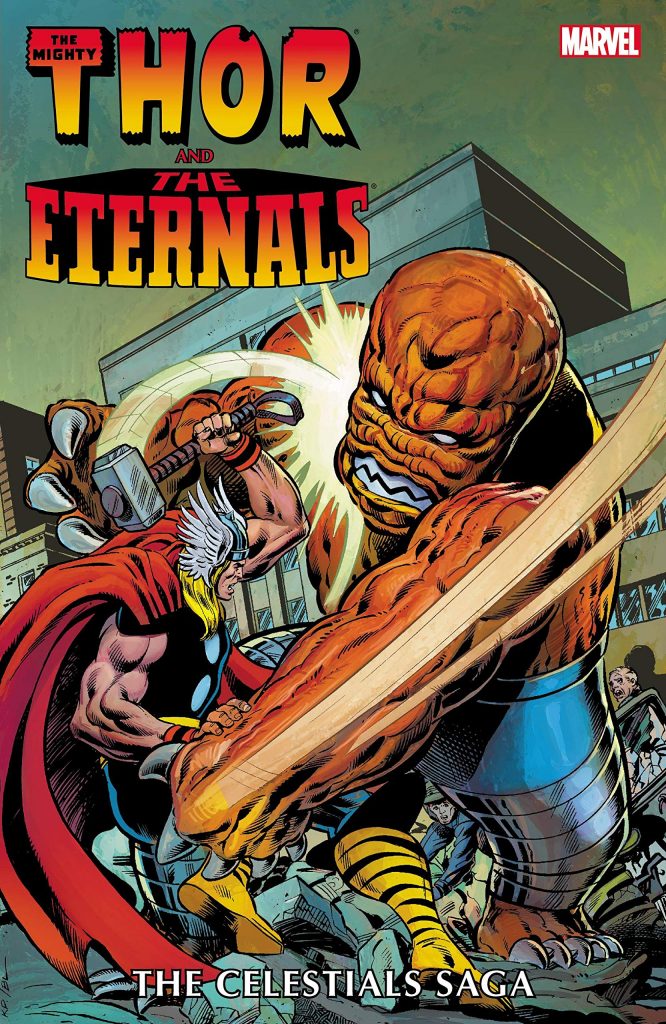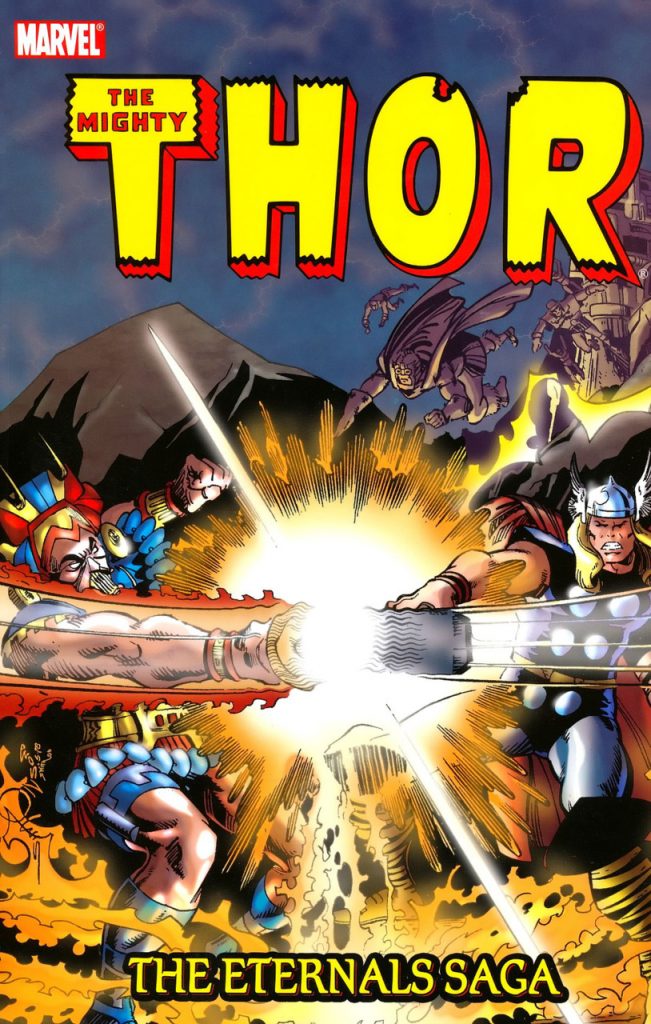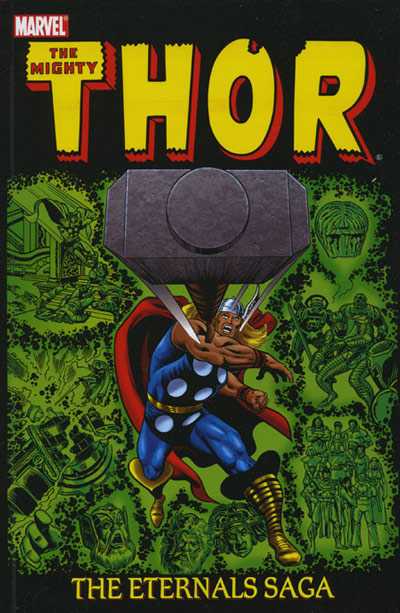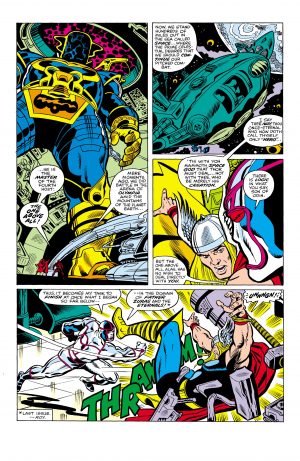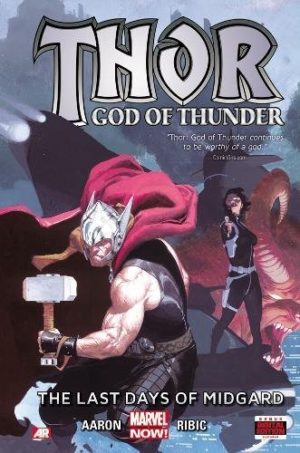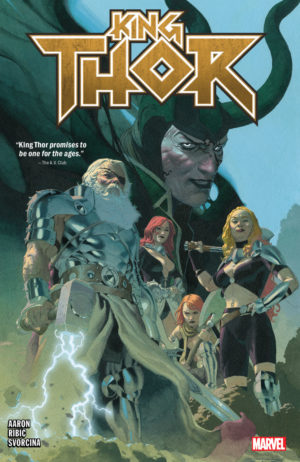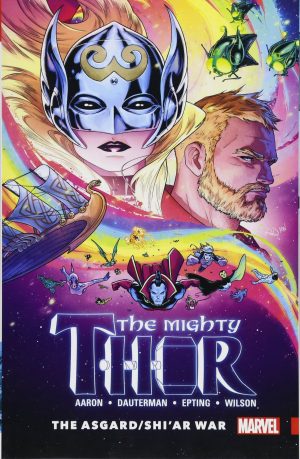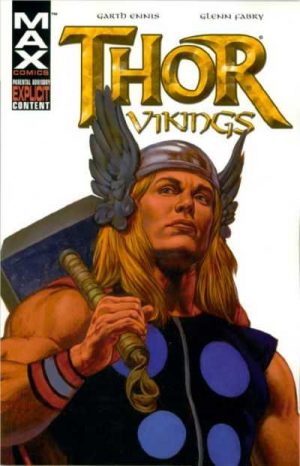Review by Karl Verhoven
The cancellation of Jack Kirby’s Eternals series left a comprehensively constructed world and background, but with murky provenance. Was that world was part of the Marvel universe? This twenty chapter doorstop comprehensively answers that question.
Although other writers provide the ending, this is Roy Thomas’ project and it’s fundamentally an exercise in reconciling all kinds of legends from comics and outside with the Marvel universe while addressing the prospect of the Celestial judgement of mankind. It opens promisingly with Walter Simonson, followed by John Buscema pencilling the first four chapters. Considering epic grandeur is on the agenda, these are the men you want drawing it, and they don’t disappoint. However, most of this collection is drawn by Keith Pollard, who may channel Kirby’s work, but doesn’t have his power or Buscema’s grace, nor the dynamism of either, so the bulk of the art is serviceable, but cruder than the opening chapters would suggest. Pollard’s really at a loss though, when it comes to crowded scenes such as the Eternals mixing it up with the Greek and Norse Gods, which just look messy.
Thomas has Thor meet secondary Eternals in the past, before taking him on a present day tour of where the Celestials are making preparations before taking on the Deviants in Lemuria and visiting the Eternals’ homeland of Olympia. The Celestials intend to judge the human race, and Thor wants to prevent any negative outcome, but discovers their silence and sheer power well beyond what he’s ever encountered. “Truly this be madness beyond compare”, bemoans Thor, “to be swatted aside like unto an insect! I, who have stood with all the rampaging hordes of Ragnarok!” Even Stan Lee can’t write Thor’s cod-Shakesperean babble as well as Thomas, but unfortunately he lets matters run away with him. One mighty battle after another progresses the plot in tiny increments, and running in the background is that Odin knows more than he’ll tell Thor.
It takes a long, long time before the sheer ambition of Thomas falls into place. He attempts to reconcile the various gods worshipped in the Marvel universe since the earliest days of human life, incorporates Norse gods previously not part of Thor’s continuity and how the Asgardian gods came to be. If that’s not enough Thomas also shoehorns in the tale of Sigurd and Brunhilde, best known as Richard Wagner’s opera Ring of the Nibelung. He enthusiastically crams everything together, but it’s a step too far. The diversion stands up in its own right, but loses sight of the bigger picture. Thomas would have been better off telling that story elsewhere and coming up with a simpler answer for a vision of Odin kneeling before a Celestial.
There’s a strong finish when Mark Gruenwald and Ralph Macchio pull everything together over two final chapters, where Pollard’s art is refined by Gene Day’s inking. Gruenwald and Macchio add their continuity tinkering, but neither they nor Thomas explain why Odin didn’t just save everyone a lot of bother by just answering a few questions when asked. These final chapters have the injection of pace other portions so desperately needed, and an epilogue chapter is very effective. However, this collection being reissued to coincide with the Eternals film is dubious. It’s epic and ambitious, but by today’s standards also incredibly wordy with art that rarely matches that ambition, rip-roaring in spells, but uninteresting at other times.
The story was first released in paperback in 2006 spread over two volumes titled Thor: The Eternals Saga.
